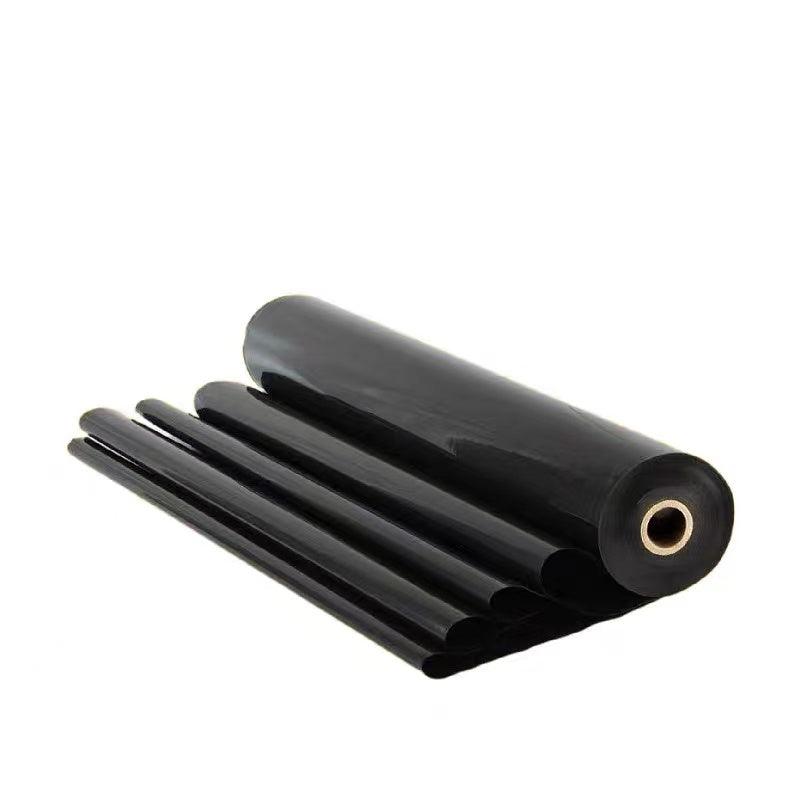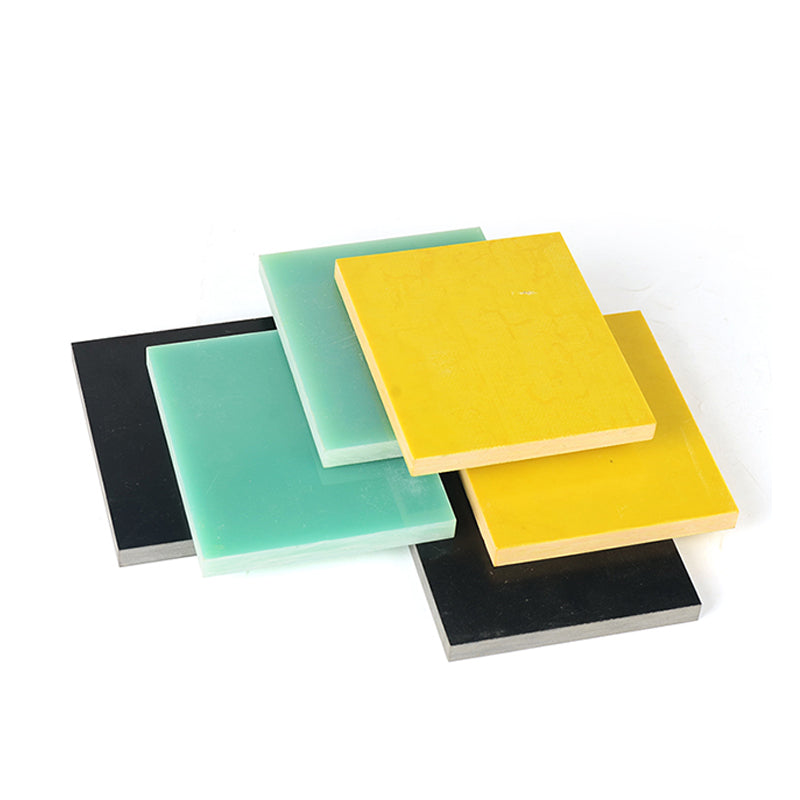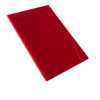HDPE in Agriculture: Boosting Crop Yields with High-Tech Plastics

Explore the remarkable versatility and sustainability of HDPE (High-Density Polyethylene) in the agricultural sector through our latest blog post, "HDPE in Agriculture: Boosting Crop Yields with High-Tech Plastics." Discover how HDPE's unique properties, such as its durability, resistance to environmental stress, and safety for food contact, make it an indispensable material in modern farming.

Delve into the advancements in greenhouse technology with HDPE sheeting and panels that enhance light diffusion and offer superior UV resistance. Learn about the transformative role of HDPE mulch films in increasing crop production by controlling weeds, conserving soil moisture, and maintaining soil temperature.
We also explore the efficiency of HDPE irrigation systems that are revolutionizing water management with their flexibility and leak resistance, which are crucial for sustainable farming practices. Lastly, get inspired by real-world case studies showcasing successful applications of HDPE in agriculture, demonstrating significant improvements in productivity and cost-effectiveness.
Join us as we uncover how HDPE is shaping the future of agriculture, contributing to more resilient farming practices and higher crop yields.
Introduction to HDPE in Modern Farming
High-Density Polyethylene, commonly referred to as HDPE, stands as a cornerstone in the realm of modern agricultural technologies. This versatile material is heralded for its durability, making it an exemplary choice for various farming applications.
What is HDPE?
HDPE, or High-Density Polyethylene, is a robust, thermoplastic polymer made from petroleum. Recognized for its strong yet lightweight nature, it is particularly valued in sectors that demand a material that can withstand harsh conditions while being cost-effective.
Key Properties of HDPE
The properties of HDPE make it a highly sought-after material in agriculture:
- Durability: HDPE is resistant to impact, moisture, and mold, ensuring longevity even under challenging environmental conditions.
- Environmental Resistance: It withstands various environmental threats such as rot, insects, and chemicals, which is crucial for agricultural usage.
- Safety for Food Contact: HDPE is non-toxic and safe for use in food-related applications, meeting FDA and USDA standards.
Advantages of HDPE in Agricultural Applications
The advantages of using HDPE in agriculture are numerous, directly impacting operational efficiency and effectiveness:
- Versatility: It can be molded into various forms such as films, sheets, and containers, adapting to a wide range of agricultural needs.
- Low Maintenance: Due to its resistance to most chemicals and its inert nature, HDPE requires minimal maintenance, saving time and resources in agricultural operations.
- Cost-Effectiveness: With its long lifespan and minimal maintenance needs, HDPE is a cost-effective solution for many farming practices.
HDPE's Role in Sustainable Farming
Embracing HDPE not only enhances agricultural productivity but also supports sustainable farming practices. Its durability and recyclability contribute to a reduction in waste and resource consumption, marking it as an environmentally friendly choice in modern agriculture.
By understanding the unique properties and benefits of HDPE, farmers and agricultural professionals can make informed decisions about integrating this high-tech plastic into their operations, optimizing both performance and environmental impact.

Advancements in Greenhouse Technology with HDPE Sheeting
Utilization of HDPE in Greenhouse Constructions
High-Density Polyethylene, commonly known as HDPE, is revolutionizing greenhouse construction with its innovative use in sheeting and panels. Traditionally, materials such as glass or standard plastics were used, but HDPE brings numerous advancements that enhance the overall efficiency and sustainability of greenhouses.
Advantages of HDPE Sheeting Over Traditional Materials
HDPE sheeting offers several key benefits over more conventional greenhouse materials:
- Enhanced Light Diffusion: HDPE panels are engineered to diffuse light more effectively, ensuring that plants receive a uniform distribution of sunlight, crucial for optimal growth and yield.
- UV Resistance: These sheets block harmful UV rays while maintaining high light transmittance. This unique feature protects plants from potential UV damage and extends the lifespan of the greenhouse structure by preventing material degradation.
- Longevity and Durability: HDPE's resistance to impact and environmental stressors like wind, rain, and fluctuations in temperature makes it an extremely durable option. This longevity reduces the need for frequent replacements and maintenance.
The Role of HDPE Panels in Modern Greenhouse Operations
The incorporation of HDPE panels into greenhouse designs not only supports better plant growth but also contributes to environmental sustainability. Their ability to withstand diverse climatic conditions without significant wear and tear makes them an economical choice for long-term agricultural projects.
Innovations in HDPE Technology for Agriculture
Ongoing innovations in HDPE technology continue to expand its applications in agriculture. For instance, new formulations of HDPE are being developed to enhance thermal insulation properties, further aiding in energy conservation within greenhouses. This progressive approach ensures that HDPE remains at the forefront of agricultural solutions, adapting to the needs of modern farming and sustainability standards.
By choosing HDPE sheeting for greenhouse construction, agricultural professionals can achieve more resilient, productive, and sustainable farming operations. This adaptation not only leads to better crop yields but also aligns with global efforts toward more environmentally friendly agricultural practices.

The Role of HDPE Mulch Films in Crop Production
Impact of HDPE Mulch Films on Agricultural Yields
High-Density Polyethylene (HDPE) mulch films are increasingly being recognized for their substantial impact on modern agriculture. As a farming solution, HDPE mulch films enhance crop production by addressing three primary agricultural challenges: weed suppression, soil moisture conservation, and temperature optimization.
Benefits of Using HDPE Mulch Films
HDPE mulch films offer several advantages that directly contribute to increased agricultural productivity:
- Weed Suppression: By providing a physical barrier between the soil and the sunlight, these films prevent weeds from receiving the light they need to grow, significantly reducing weed proliferation without the need for chemical herbicides.
- Moisture Conservation: HDPE films help to maintain soil moisture by reducing evaporation. This is crucial in arid climates and during dry seasons, ensuring that crops receive adequate water.
- Temperature Control: These films are effective in moderating soil temperature. During colder months, they help retain heat in the soil, and in hotter periods, they can reflect sunlight to keep the soil cooler.
Comparison with Other Types of Plastic Mulch
While other plastics such as low-density polyethylene (LDPE) and polypropylene (PP) are also used as mulch, HDPE stands out for its durability and effectiveness. Compared to LDPE, HDPE is more rigid and less permeable, making it better at retaining moisture and controlling weeds. It is also more resistant to tearing and can withstand heavier agricultural use and harsher environmental conditions.
Recycling and Sustainability of HDPE Mulch Films
Sustainability is a key concern in agriculture today. Recycling options for HDPE mulch films are expanding, reducing their environmental impact. Unlike traditional plastic films that often end up in landfills, HDPE can be recycled effectively, promoting a circular economy in agricultural practices. Research and development are ongoing to improve the recyclability of HDPE films and to develop biodegradable alternatives that may offer similar benefits without the environmental drawbacks.
By incorporating HDPE mulch films into agricultural practices, farmers can enhance crop yields while also contributing to environmental sustainability. These films offer a practical solution to several farming challenges, making them a valuable tool in the arsenal of modern agriculture.

HDPE Irrigation Systems: Efficiency and Sustainability
Introduction to HDPE in Irrigation Systems
High-Density Polyethylene, or HDPE, has become a cornerstone material for irrigation systems worldwide due to its numerous beneficial properties. This section will explore how HDPE is used in irrigation piping systems and the innovations that make it a superior choice for modern agricultural water management.
Key Properties of HDPE for Irrigation
HDPE pipes are highly valued in the agricultural sector for their flexibility, leak resistance, and corrosion resistance. These characteristics ensure that HDPE irrigation systems can deliver water more efficiently and sustainably:
- Flexibility: HDPE pipes can bend to fit a variety of landscapes without breaking, reducing the need for additional fittings and decreasing the chance of leaks.
- Leak Resistance: The joints in HDPE piping can be fusion welded to create a seamless and airtight seal, significantly minimizing water loss.
- Corrosion Resistance: Unlike metal pipes, HDPE is immune to corrosion and chemical reactions, which can degrade other types of materials over time.
Innovations in HDPE Irrigation Designs
Recent advancements in HDPE irrigation technology focus on water conservation and waste reduction. These innovations include:
- Drip Irrigation Systems: HDPE is often used in the manufacture of drip irrigation tubing, which delivers water directly to the plant roots. This method greatly reduces water wastage and increases water use efficiency.
- Smart Irrigation: Incorporating sensors and IoT (Internet of Things) technology into HDPE systems allows for precise water management, adjusting water flow based on real-time soil and weather data.
Sustainability of HDPE Irrigation Systems
The sustainability of HDPE in agricultural irrigation comes not only from its efficiency but also from its long lifespan and recyclability. Sustainable farming practices increasingly rely on materials like HDPE that contribute to long-term environmental health. The material's durability means that it does not need frequent replacement, reducing resource use and waste production over time.
By integrating HDPE into irrigation systems, farmers can achieve a balance between efficient water management and environmental stewardship. The ongoing development of HDPE-based technologies continues to push the boundaries of what's possible in agricultural water use, aiming for optimal efficiency and minimal environmental impact.

Case Studies: Success Stories Using HDPE in Agriculture
Overview of HDPE Impact in Agricultural Practices
High-Density Polyethylene (HDPE) has been instrumental in transforming agricultural operations across the globe. This section highlights real-world examples where HDPE products have significantly improved productivity, reduced operational costs, and provided environmental benefits.
Case Study 1: Enhanced Irrigation Efficiency with HDPE Pipes
One notable example involves a large-scale farm in California that switched to HDPE piping for its irrigation system. The farm reported a 30% increase in water efficiency due to the leak-resistant nature of HDPE. This transition not only conserved water but also reduced the energy costs associated with pumping and transporting water, demonstrating a substantial decrease in overall operational expenses.
Case Study 2: Durability and Cost Savings in Greenhouse Construction
Another success story comes from a commercial greenhouse operator in the Netherlands. They adopted HDPE sheeting for their greenhouses, which enhanced light diffusion and extended the lifespan of the structures. The UV resistance of HDPE helped maintain the integrity of the greenhouses against harsh sunlight, reducing the frequency of replacements and maintenance costs. The operator reported a marked improvement in plant growth rates and a reduction in material degradation.
Case Study 3: Agricultural Mulching with HDPE Films
In the southeastern United States, several farms have implemented HDPE mulch films to suppress weeds and conserve soil moisture. These farms have seen an increase in crop yields by up to 25% while also reducing the use of water and herbicides. The durability of HDPE mulch films meant fewer replacements throughout the growing season, leading to further operational savings and less environmental impact from waste.
Environmental Benefits Across Case Studies
Across all case studies, the use of HDPE in agriculture has not only boosted productivity and cost-efficiency but also contributed significantly to environmental conservation. The reduction in water and energy usage, along with the decrease in chemical inputs (like herbicides), underscores HDPE's role in promoting sustainable agricultural practices. Furthermore, the recyclability of HDPE products aligns with global efforts towards reducing plastic waste and enhancing sustainability in farming.
These case studies exemplify the transformative potential of HDPE in modern agriculture, demonstrating its effectiveness in improving both the economic and environmental aspects of farming operations. By adopting HDPE, farms and agricultural businesses can achieve a more sustainable future, optimizing resource use while minimizing environmental footprint.

Frequently Asked Questions About HDPE and Beeplastics Customization
1. What is HDPE and why is it used in agriculture?
HDPE (High-Density Polyethylene) is a versatile, durable plastic used extensively in agriculture for applications such as irrigation systems, mulch films, and greenhouse sheeting. It is favored for its resistance to environmental factors, durability, and safety in food contact applications.
2. Can Beeplastics customize HDPE products for specific agricultural needs?
Yes, Beeplastics can undertake any customization required, from single sample customizations to large batch customizations. Whether you need a specific design for irrigation pipes or custom-sized HDPE sheets for greenhouses, we can tailor our products to meet your exact specifications.
3. What file formats does Beeplastics accept for product designs?
Beeplastics accepts a variety of file formats for product designs, including PDF and CAD files. This flexibility allows customers to submit their designs in the format that is most convenient for them.
4. Is there a minimum order quantity (MOQ) required for custom HDPE products at Beeplastics?
No, there is no minimum order quantity at Beeplastics. We are committed to supporting projects of all sizes, from small custom orders to large-scale productions.
5. What determines the production cycle for custom HDPE products at Beeplastics?
The production cycle for custom HDPE products depends on the order quantity and the complexity of the customization process. We communicate with customers about production progress in real-time to ensure transparency and satisfaction.
6. Does Beeplastics provide samples before full production?
Yes, Beeplastics supports the provision of samples before moving forward with full production. Samples are provided free of charge; however, customers are responsible for the shipping costs.
7. How does HDPE contribute to environmental sustainability in agriculture?
HDPE helps reduce environmental impact in agriculture through its durability and efficiency. It reduces the need for frequent replacements due to its long lifespan and helps conserve resources like water in irrigation systems.
8. How do HDPE mulch films benefit crop production?
HDPE mulch films help increase agricultural yields by suppressing weeds, conserving soil moisture, and optimizing soil temperature. These films also reduce the need for chemical herbicides, contributing to more sustainable farming practices.
9. What are the advantages of using HDPE in greenhouse construction?
HDPE is highly beneficial in greenhouse construction due to its enhanced light diffusion, UV resistance, and longevity. These properties help create optimal growing conditions and reduce maintenance and replacement costs.
10. How does Beeplastics handle large orders and complex customizations?
For large orders and complex customizations, Beeplastics carefully plans and manages the production process to meet client specifications efficiently. We ensure that all details are addressed, from material selection to final production, maintaining high standards of quality and customer satisfaction.
In conclusion, High-Density Polyethylene (HDPE) has proven to be an indispensable material in the agricultural sector, offering unparalleled benefits in terms of durability, efficiency, and environmental sustainability. From revolutionizing greenhouse technology with its superior sheeting options to enhancing crop production through effective mulch films and reliable irrigation systems, HDPE continues to be a key player in advancing agricultural practices. Moreover, with Beeplastics' flexible customization options, including support for various design formats and a commitment to accommodating orders of any size without a minimum MOQ, agricultural professionals can easily tailor HDPE solutions to meet their specific needs. Embracing HDPE products not only optimizes farming operations but also aligns with sustainable practices, ensuring a healthier planet for future generations.

Get Started with Custom HDPE Solutions Today!
Interested in boosting productivity and sustainability on your farm with HDPE? Reach out now by filling out our contact form at the bottom of this page. For a deeper dive into our customization options, visit our dedicated HDPE custom processing page and see what we can do for you.
🎉🎉🎉Limited Time Offer Use code: QR4GNY08SHVR at checkout and enjoy a special discount on your entire order! 👉 HDPE plastic
-
Posted in
agriculture, crop yields, greenhouses, HDPE, irrigation, plastics, storage, sustainable farming, water conservation








